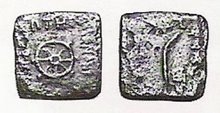Wednesday, August 8, 2018
Some Useful Behavior Modification Tools for Adults
Behavior modification tools may change the way adults react mentally to a specific stimulus.
These tools may mitigate a drug addiction "behavior" (CAPD) or train someone to make their bed each morning.
Behavior modification is based on operant conditioning.
An undesirable behavior is replaced with a suitable behavior ones through various techniques.
B.F. Skinner conducted scientific research in the 1950s by training rats through rewards and punishments. His practices continue to influence practicing psychologists to this day.
Behavior modification requires planning a course of action, attention to course of action, and repetition of the course of action. You do not develop the habit (or ritual - Jung's term) of going to bed at 9 p.m. by doing it ONCE.
1. Positive Reinforcement
Positive reinforcement involves providing gratification in reaction to someone's exhibiting the desired behavior. Adults, like Westie-Poos, respond to praise and recognition.
2. Negative Reinforcement
Negative reinforcement is generally recognized as ineffective. Shunning is the oldest form of punishment (expulsion from the tribe). Pointing at a poop pile on the kitchen floor and shouting "No!" leads only to confusion.
3. Punishment
Punishment is generally recognized as least effective and most counterproductive. Consider the case in which people gather to watch a pick-pocket get his hand chopped off and are victimized by swarms of pick pockets in the crowd while they wait. Research has found that inmates "earn" greater amounts of illegal money after they serve time in prison. Violent parents raise violent children!
4. Emotional Freedom Technique (EFT)
Also known as Meridian Tapping, EFT is based on the premise that negative behaviors stem from 'short circuits' in the body’s 'energy system.' This technique is done by drumming on certain areas on the body to balance energy and release the short circuit. Quack, quack!
5. Neuro-Linguistic Programming (NLP)
The NLP technique is about communication. We communicate with others and ourselves, and that affects the way we behave. Communication can be altered by removing a single word: "Hate" from the lexicon. Swear words are frequently targets of NLP 'programmers.'
6. Meditation
Meditation has been used for centuries to improve the brain and make physiological changes in behavior. Meditation is one of the best behavior modification tools in existence. It helps alleviate anxiety and depression, causing improvement in a person’s sense of well-being.
7. Ignoring odd behavior
Ignoring odd behavior is generally recognized as ineffective. You can sometimes modify behavior through ignoring it. By ignoring the behavior you will marginally reduce its tendency to reappear. Just ignore someone who is engaging in a behavior that is undesirable - like begging.
8. Cognitive Behavioral Therapy (CBT)
CBT is a psychotherapeutic approach that addresses maladaptive behaviors through goal-oriented procedures. CBT puts the focus on the “here and now”, a structuring of the path, a guidance role by the therapist, and on alleviating both the patient’s vulnerability and worrisome symptoms.
Subscribe to:
Post Comments (Atom)
















No comments:
Post a Comment